On November 10, 2021, Vietnam Japan University, in collaboration with Vietnam Cultural Initiatives and partners, hosted the talk series with the theme “Living with folklore”. The series included two online seminars, “Folklore in the cultural industry” and “Digital folklore – Folklore on the digital platforms”.
These seminars are within the framework of the Vietnam Festival of Creativity and Design 2021, operated by RMIT University, in collaboration with United Nations Educational, Scientific and Cultural Organization (UNESCO), Vietnam National Institute of Culture and Arts Studies (VICAS), COLAB Vietnam and other partners, with Hanoi Grapevine as media partner.
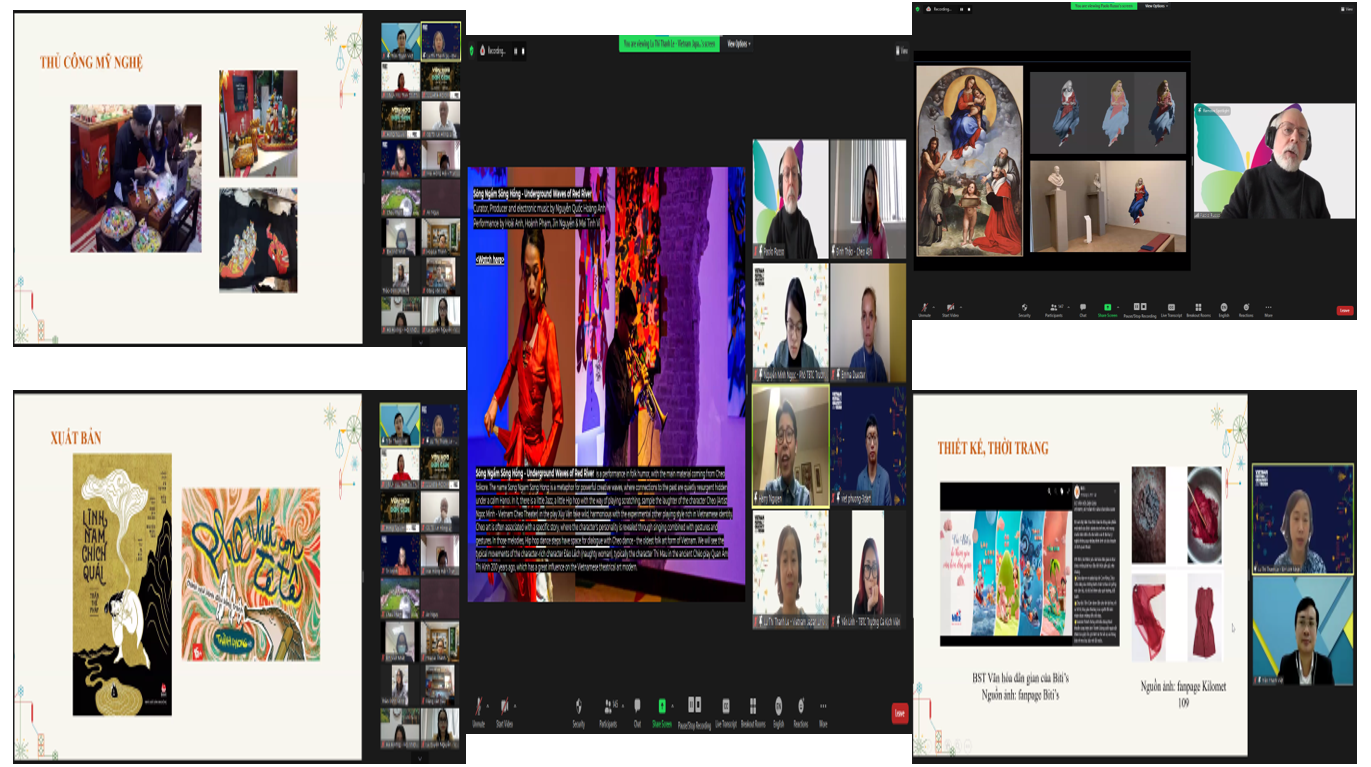
Along with the Rectorate Board of VJU, Experts, Speakers joining the seminars were varied from the fields of culture, economy, policy-making, art, and folklore as: Professor Dr. Lê Hồng Lý – President of The Association of Vietnamese Folklorists; Mr. Trí Minh – Musician; Associate Professor Dr. Trần Thị Thanh Tú – Vice Rector of Vietnam-Japan University, VNU–Hanoi; Mr. Đặng Văn Hậu – Tò he artisan; Mr. Lê Mạnh Cương – Founder of KEIG Studio and Board game Thần tích; Dr. Trần Thanh Việt – Lecturer at University of Social Sciences and Humanities,VNU–Hanoi. Through the presentations, research reports, panel discussion, and stories gathered from the program “Living with Folklore”, the event brought a diverse perspective on folklore in the cultural industries, from Vietnam’s point of view as well as in comparison to the region and the world.
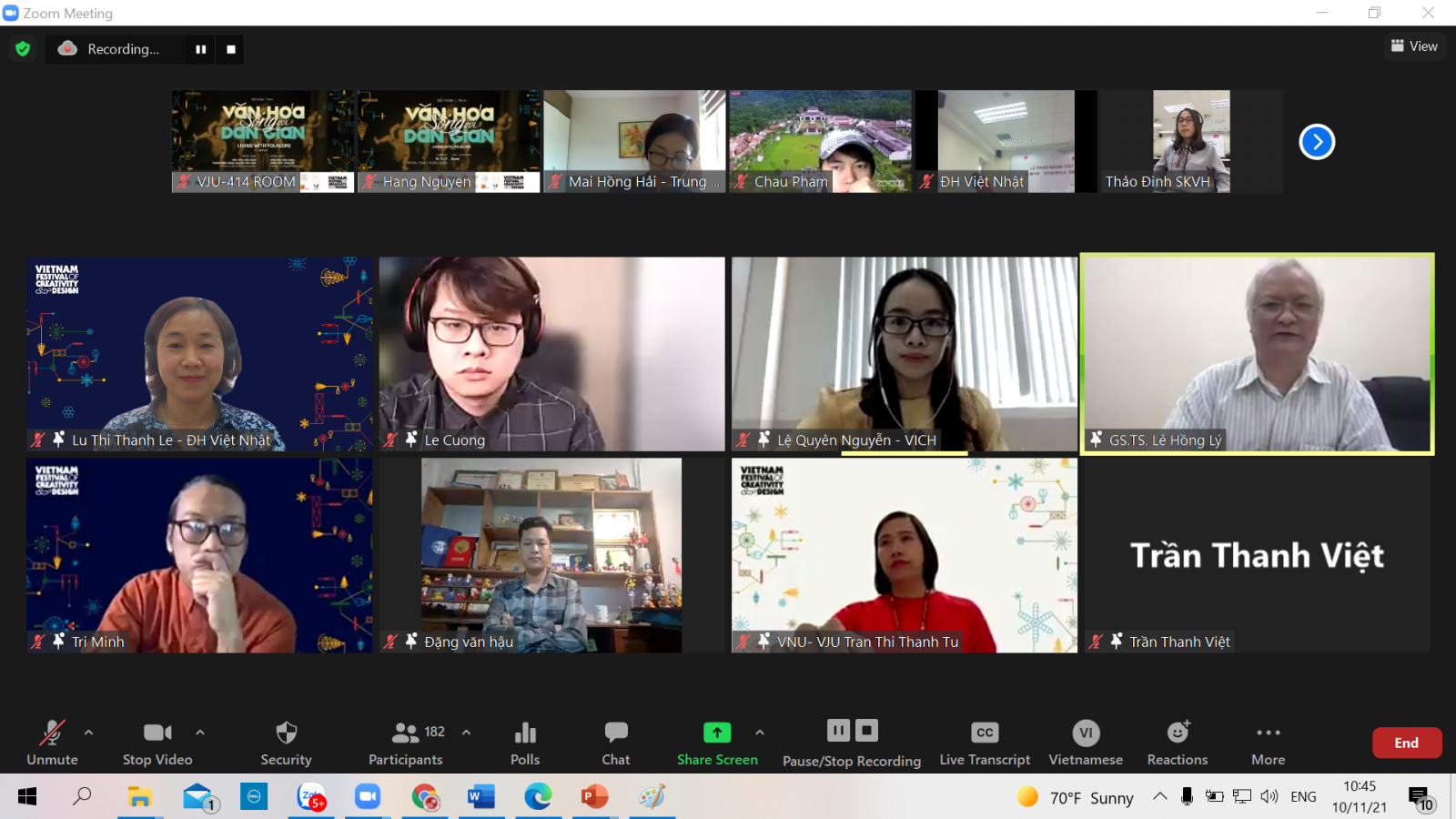
Dr. Lu Thi Thanh Le, lecturer of Vietnamese Studies, Master’s Program in Area Studies – Vietnam Japan University (VNU–Hanoi), moderated the talk series with Ms. Nguyen Thi Le Quyen, Deputy Director of the center for Vietnam’s Intangible Cultural Heritage (VICH), co-moderator in the first session.
The talk series took place all day. The morning session on “Folklore in the cultural industry” aimed to explore the connection between folklore and the cultural industries. Other remarkable topics were the role and values of folklore in people’s lives and livelihoods, the possibilities and challenges in developing modern-day products and services based on folklore materials, as well as the ability to promote folklore through the products and services of the cultural industries.
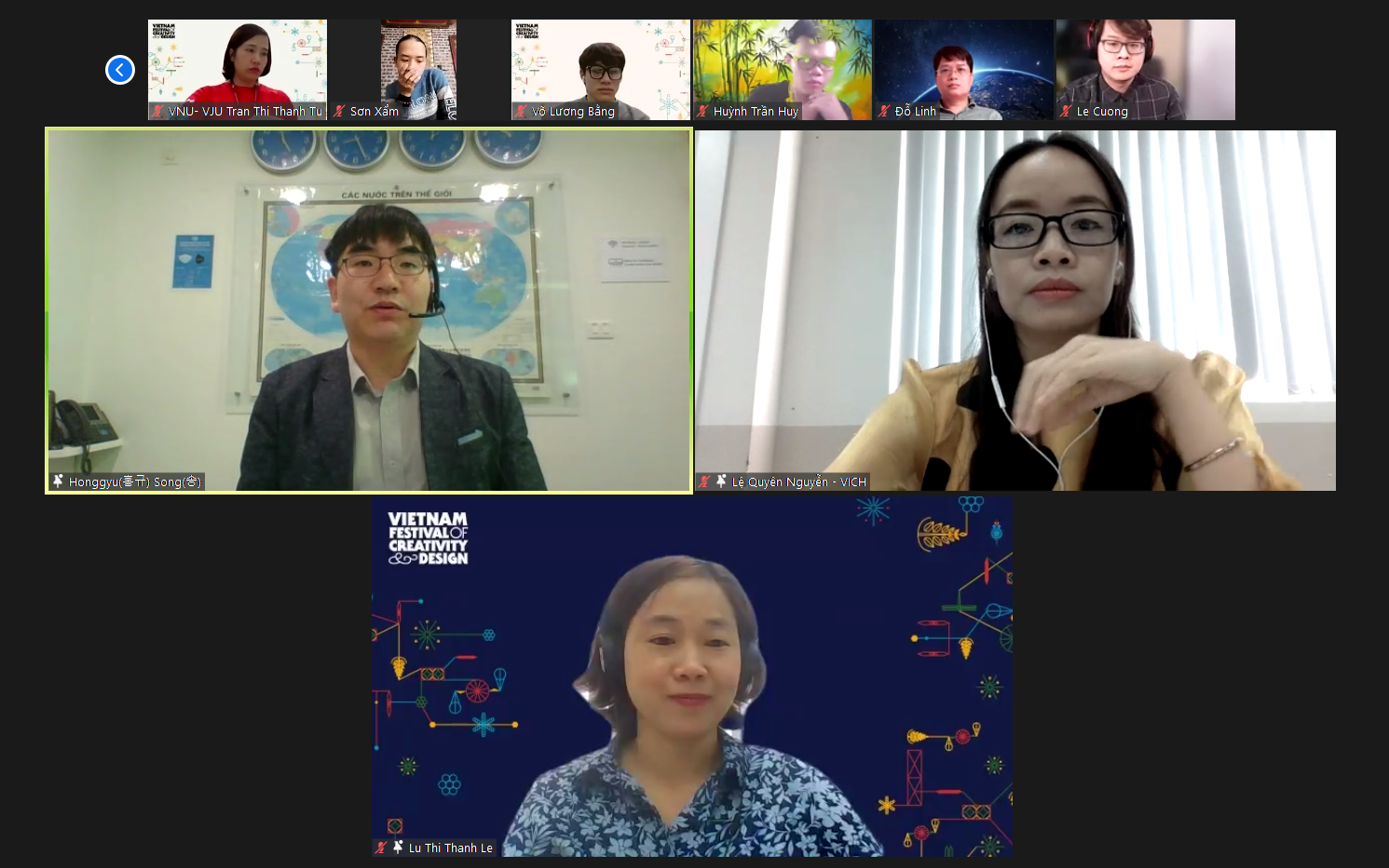
In the first session, Mr. Song Honggyu, Representatives of UNESCO Office in Hanoi, shared the experience of Korea in promoting folklore culture in the cultural industries.
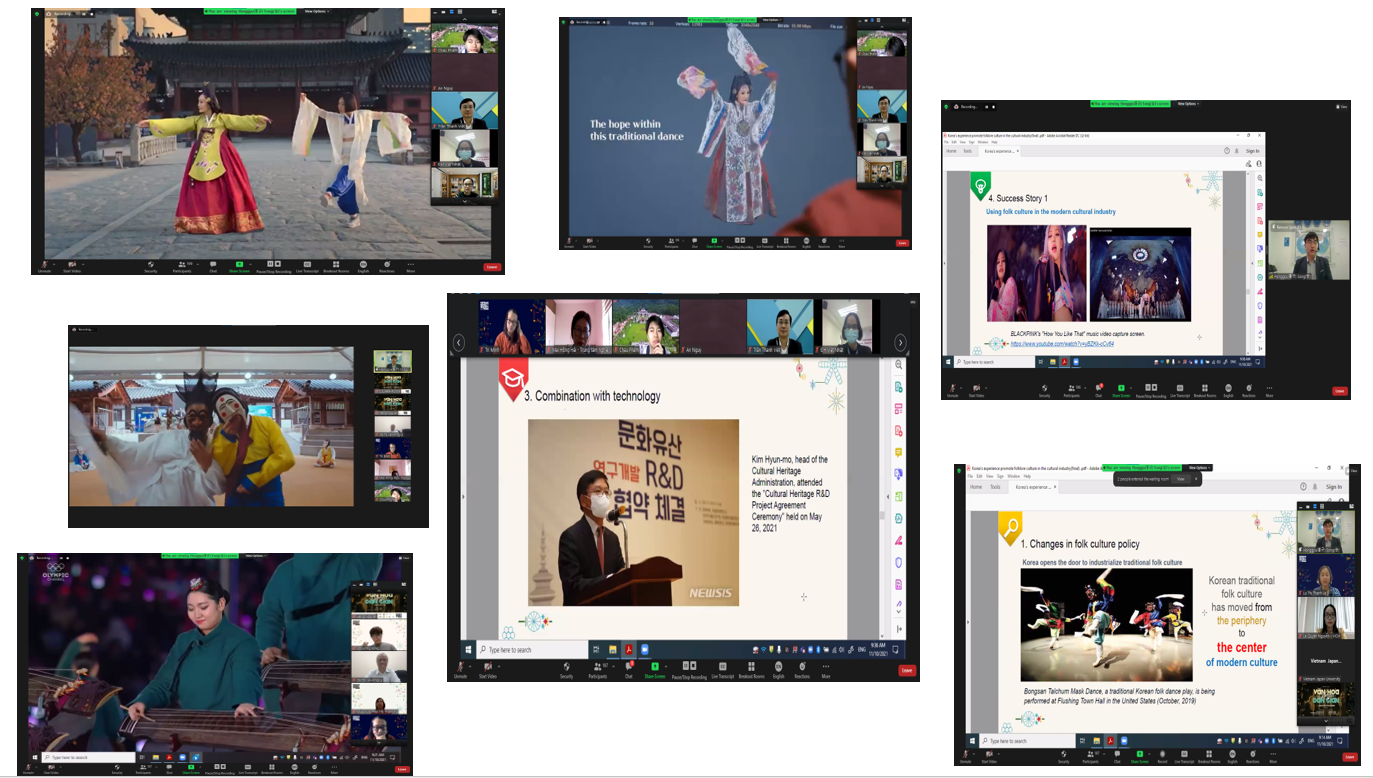
From Vietnam’s perspective, Dr. Tran Thanh Viet, University of Social Sciences and Humanities (USSH) and Dr. Lu Thi Thanh Le, VJU, presented an overview of Vietnamese folklore and provided some insights from the communication programme “Living with Folklore”.
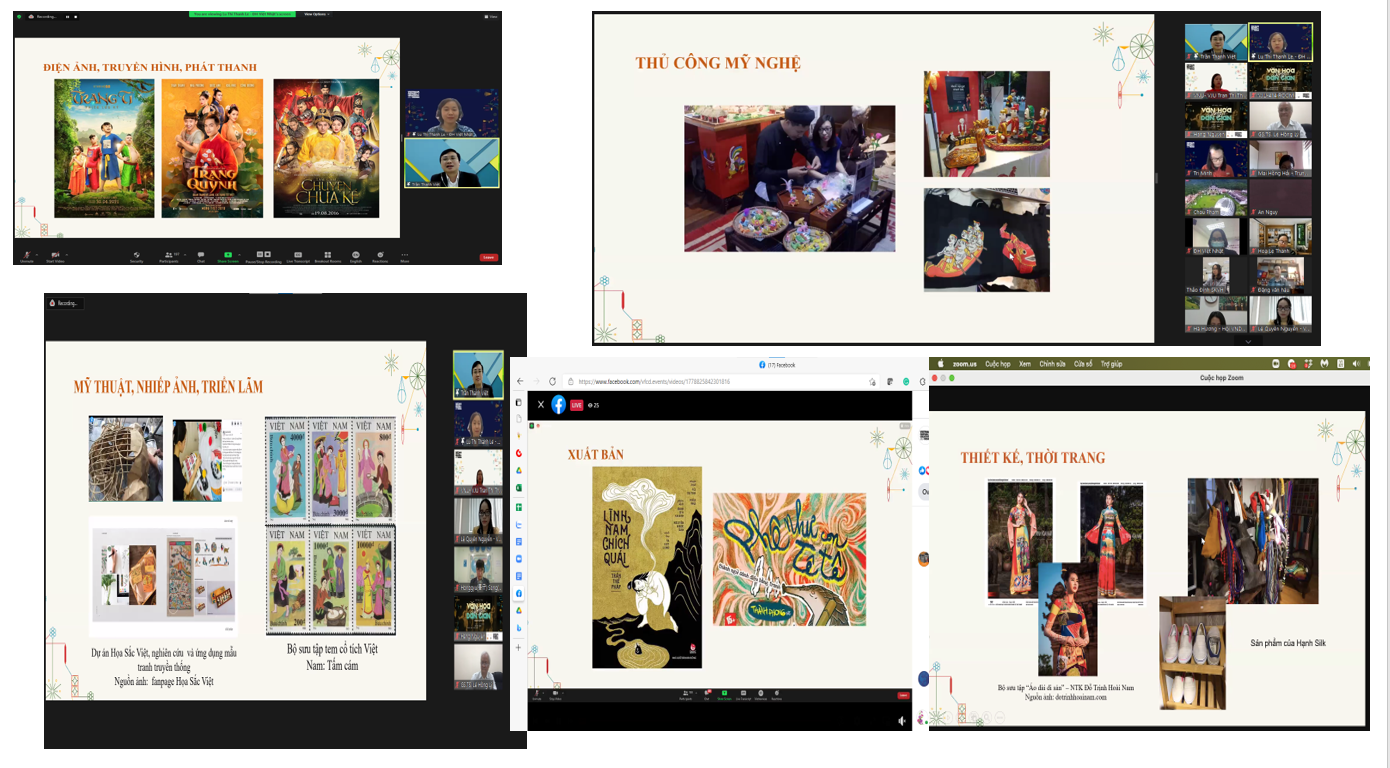 Folklore materials are exploited in many fields such as cinema, television, radio, handicrafts, publishing, advertising, fashion, and performing arts
Folklore materials are exploited in many fields such as cinema, television, radio, handicrafts, publishing, advertising, fashion, and performing arts
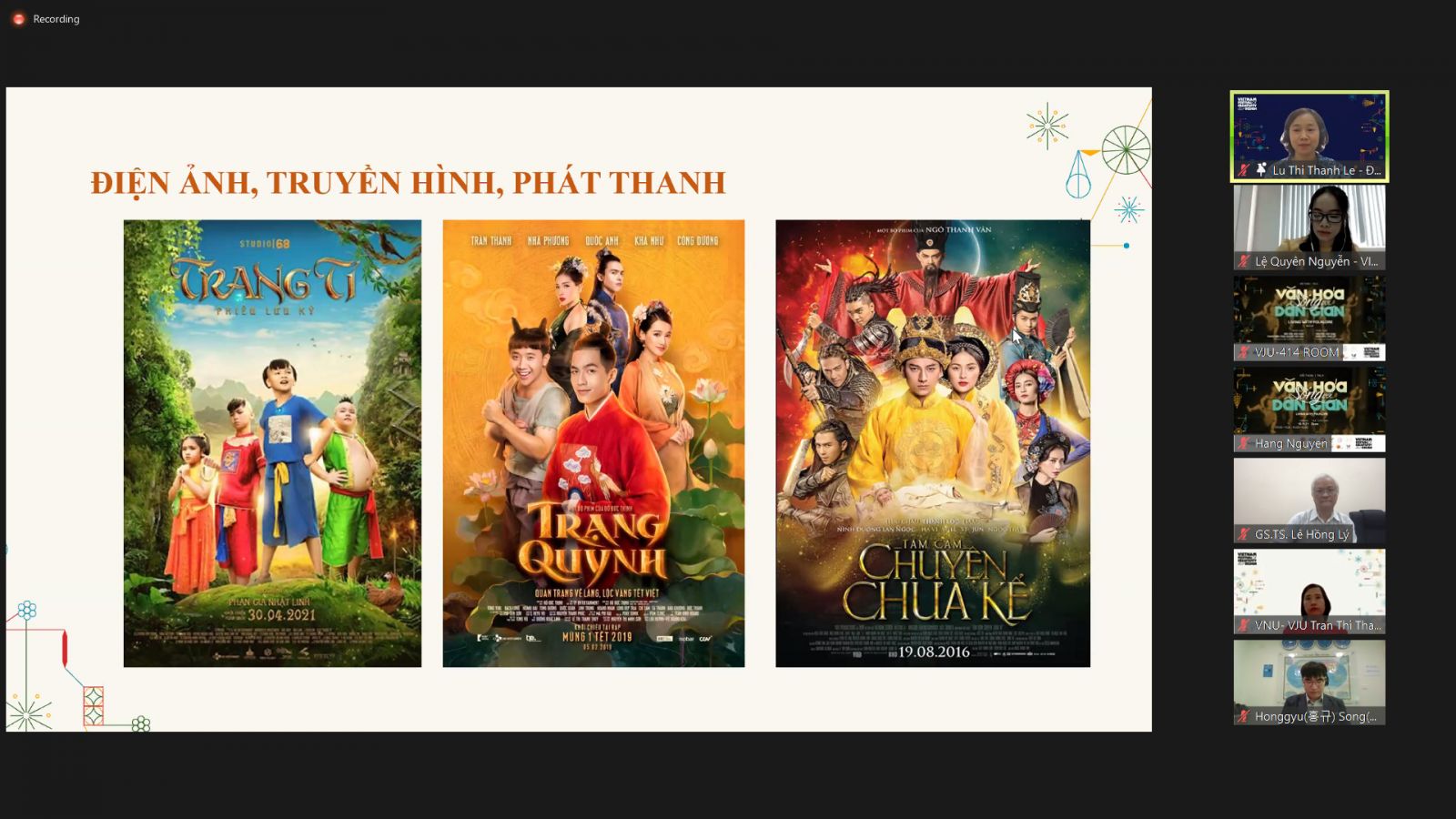
Challenges in commercializing products and services with folklore materials
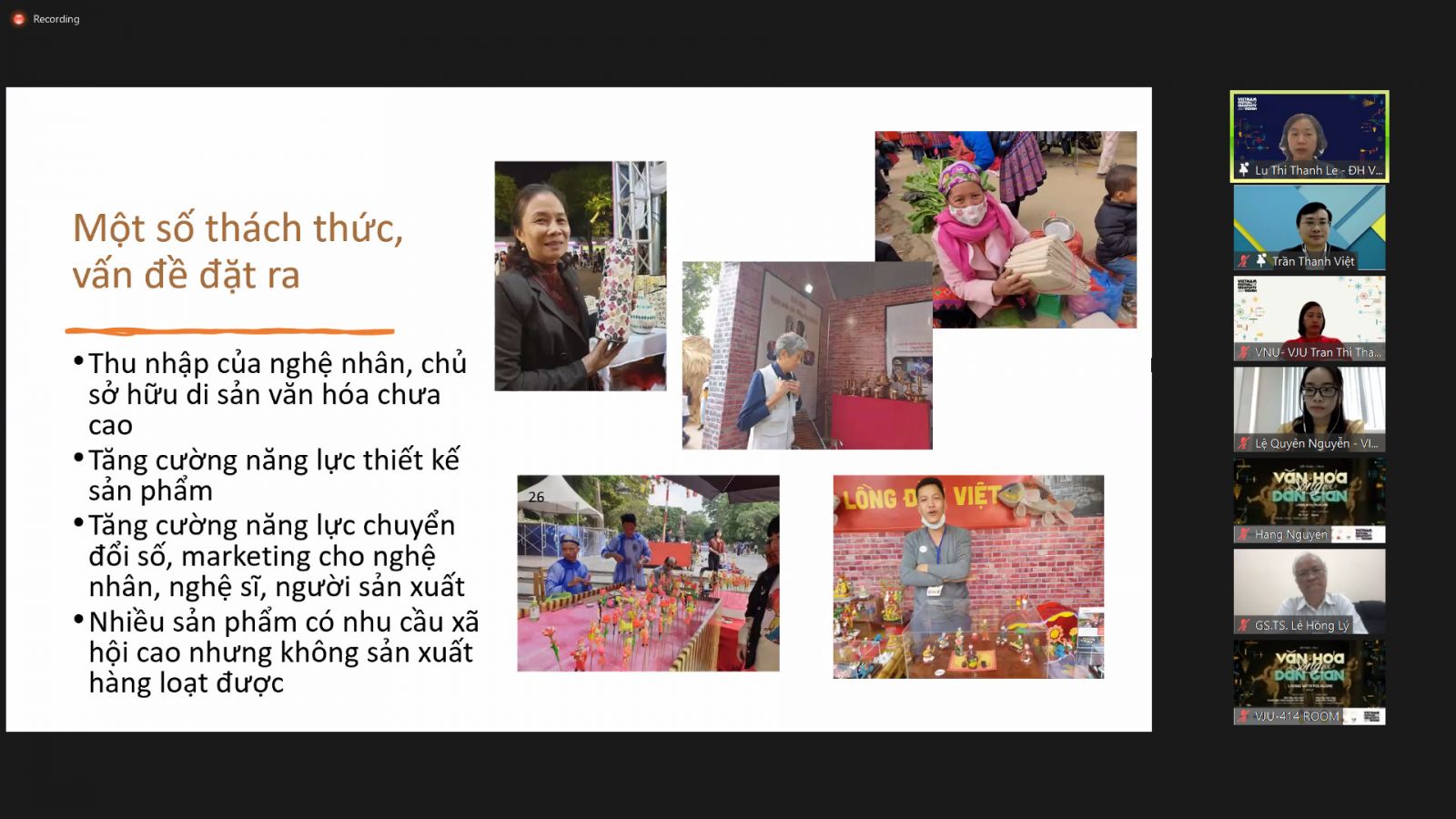
Other collaborators of the first seminar included Chèo 48h, VICH – The Center for Vietnam’s Intangible Cultural Heritage, Về Làng, Trường Ca Kịch Viện, and The Association of Vietnamese Folklorists, Human-Machine Interaction Laboratory – University of Engineering and Technology (Vietnam National University – Hanoi), Folklore Club USSH.
The second session of the series was held in the afternoon, with the presentation of speakers from five projects on folklore on digital platforms in Vietnam and in the world as: Ms. Điền Diệu Anh – Head the Organising Committee, Ms. Nguyễn Ngọc – Deputy Head of the Organising Committee, Trường Ca Kịch Viện Project; Mr. Nguyễn Quốc Hoàng Anh – Director, Producer, Musician; Mr. Đinh Việt Phương – Director of 3D Art company, a creative and technology solutions agency; Ms. Emma Duester – Lecturer at School of Communication and Design, RMIT University Vietnam; Mr. Paolo Russo – President of CRHACK Lab, Italy, in which experts and communities work with digital multimedia materials on various subjects such as traditional performing arts, craft villages, handicrafts, objects associated with traditional customs, architectural heritage, visual arts, etc. The seminar aimed to explore the expression, preservation, and promotion of folk cultural values on digital platforms.
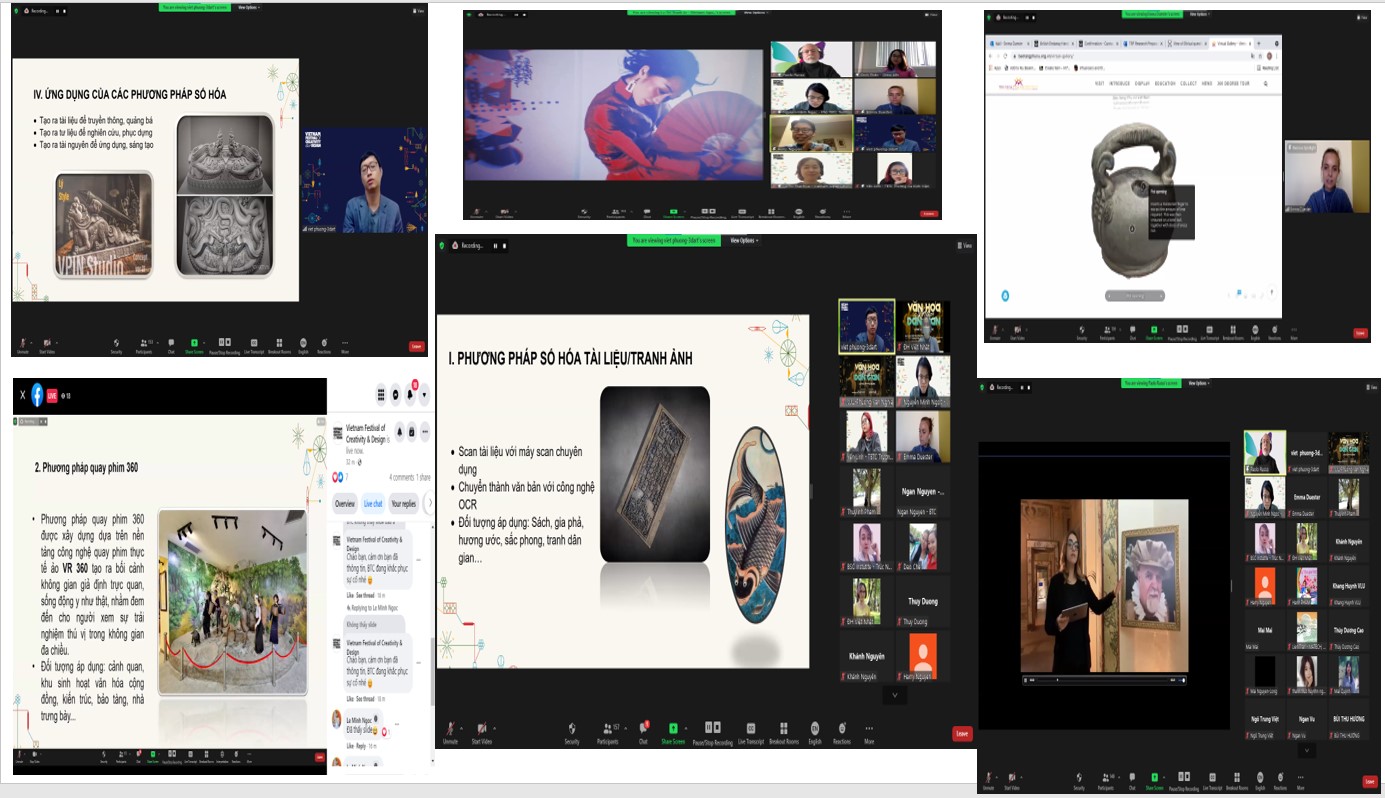 Opening a discussion between guest speakers from universities, organizations, businesses, and individuals in the field, the seminar presented the practices, opening up new collaborations and initiatives to promote the preservation and digitization of folk culture, and enhancing people’s experience of folklore on digital platforms.
Opening a discussion between guest speakers from universities, organizations, businesses, and individuals in the field, the seminar presented the practices, opening up new collaborations and initiatives to promote the preservation and digitization of folk culture, and enhancing people’s experience of folklore on digital platforms.
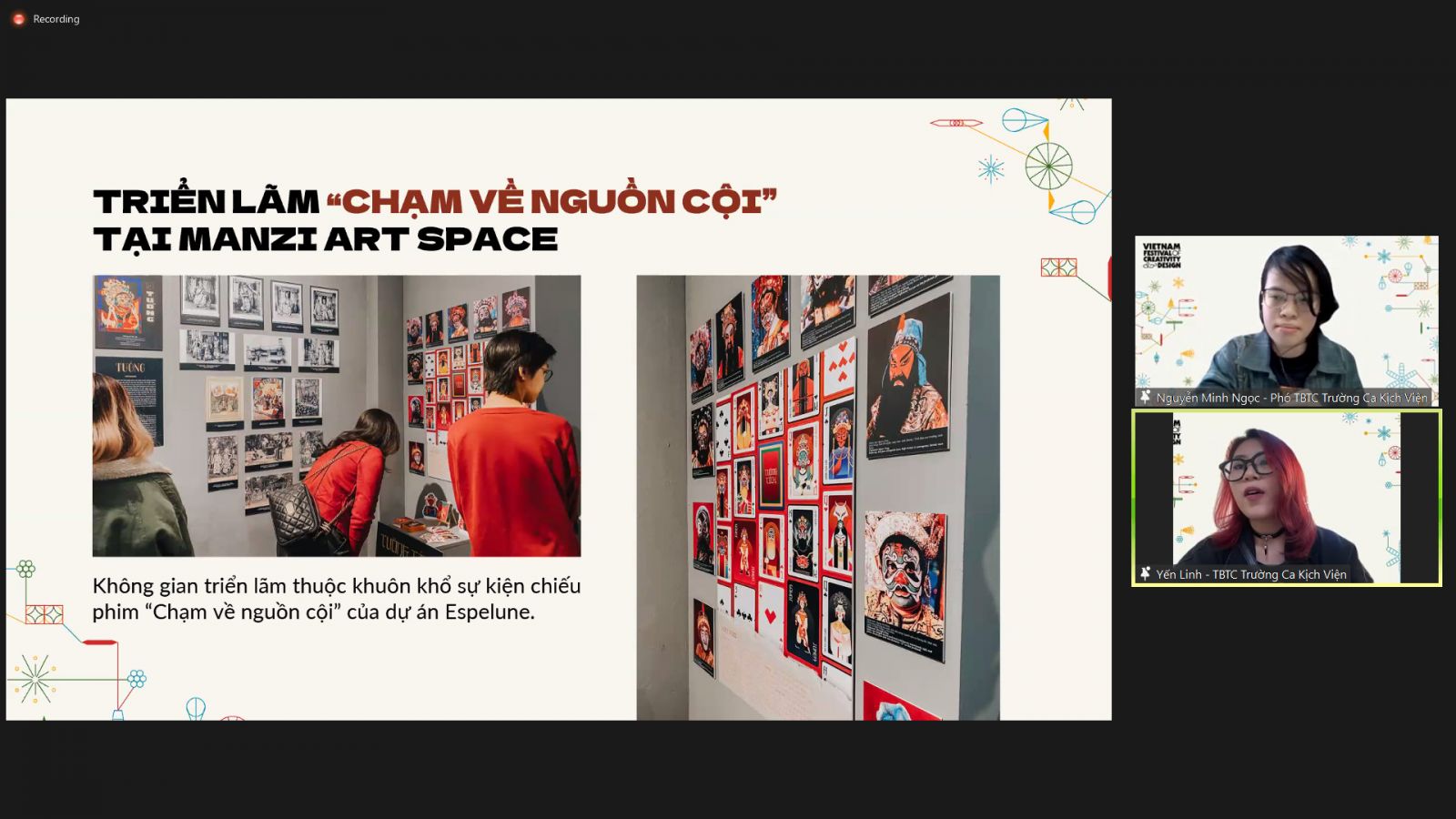 “Chạm về nguồn cội” exhibition of Trường Ca Kịch Viện Project at Manzi Art Space
“Chạm về nguồn cội” exhibition of Trường Ca Kịch Viện Project at Manzi Art Space
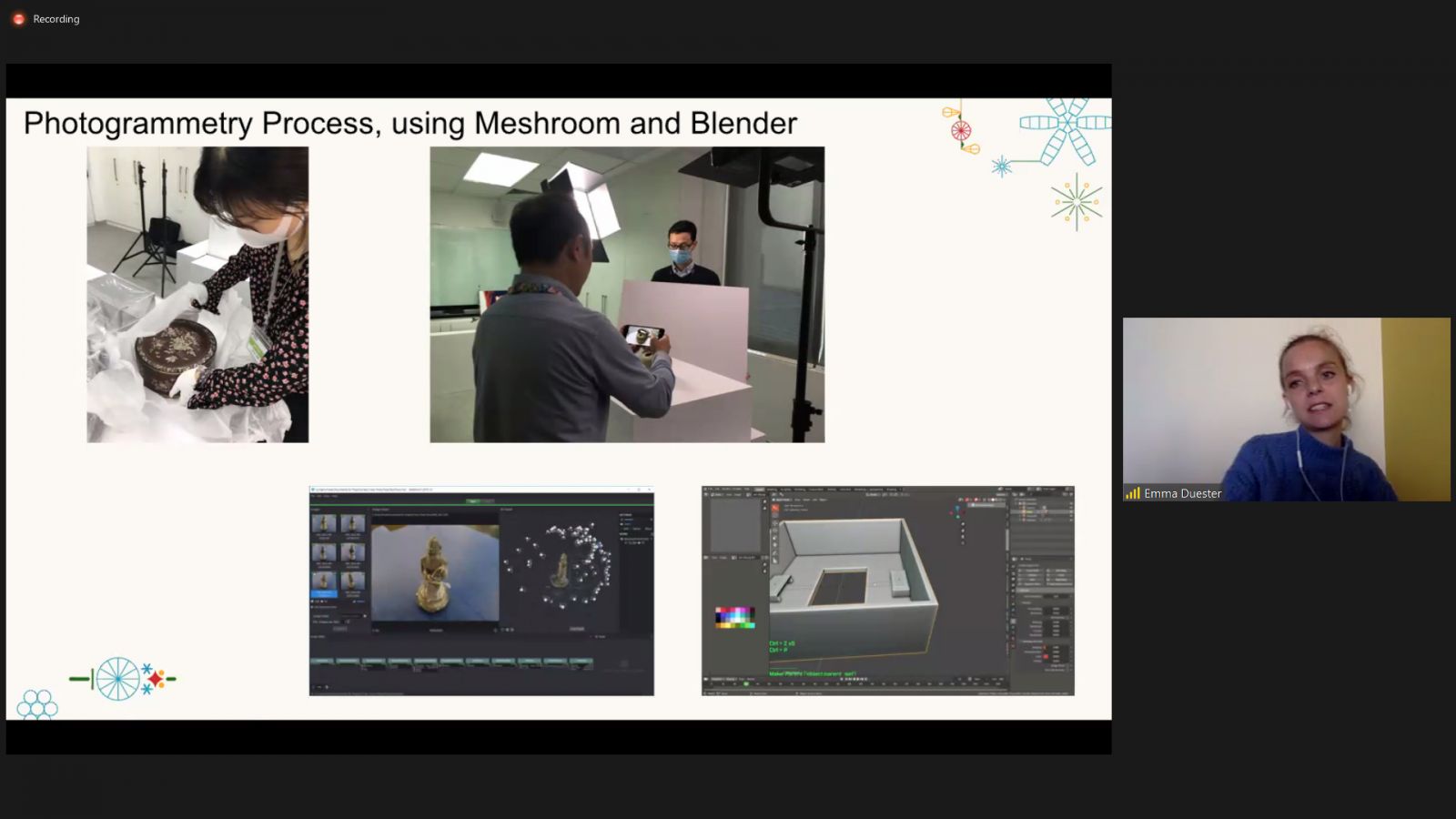 Photogrammetry process in the Digitisation of the Betel Nut collection at Vietnamese Women’s Museum
Photogrammetry process in the Digitisation of the Betel Nut collection at Vietnamese Women’s Museum
The second seminar was held with the collaboration of Chèo 48h, VICH – the Center for Vietnam’s Intangible Cultural Heritage, Về Làng, Trường Ca Kịch Viện, and The Association of Vietnamese Folklorists, Human-Machine Interaction Laboratory – University of Engineering and Technology (Vietnam National University – Hanoi), European Grants International Academy –EGINA, CRHACK Lab Foligno 4D (Italy).
Photo sessions to wrap up the Talk series:
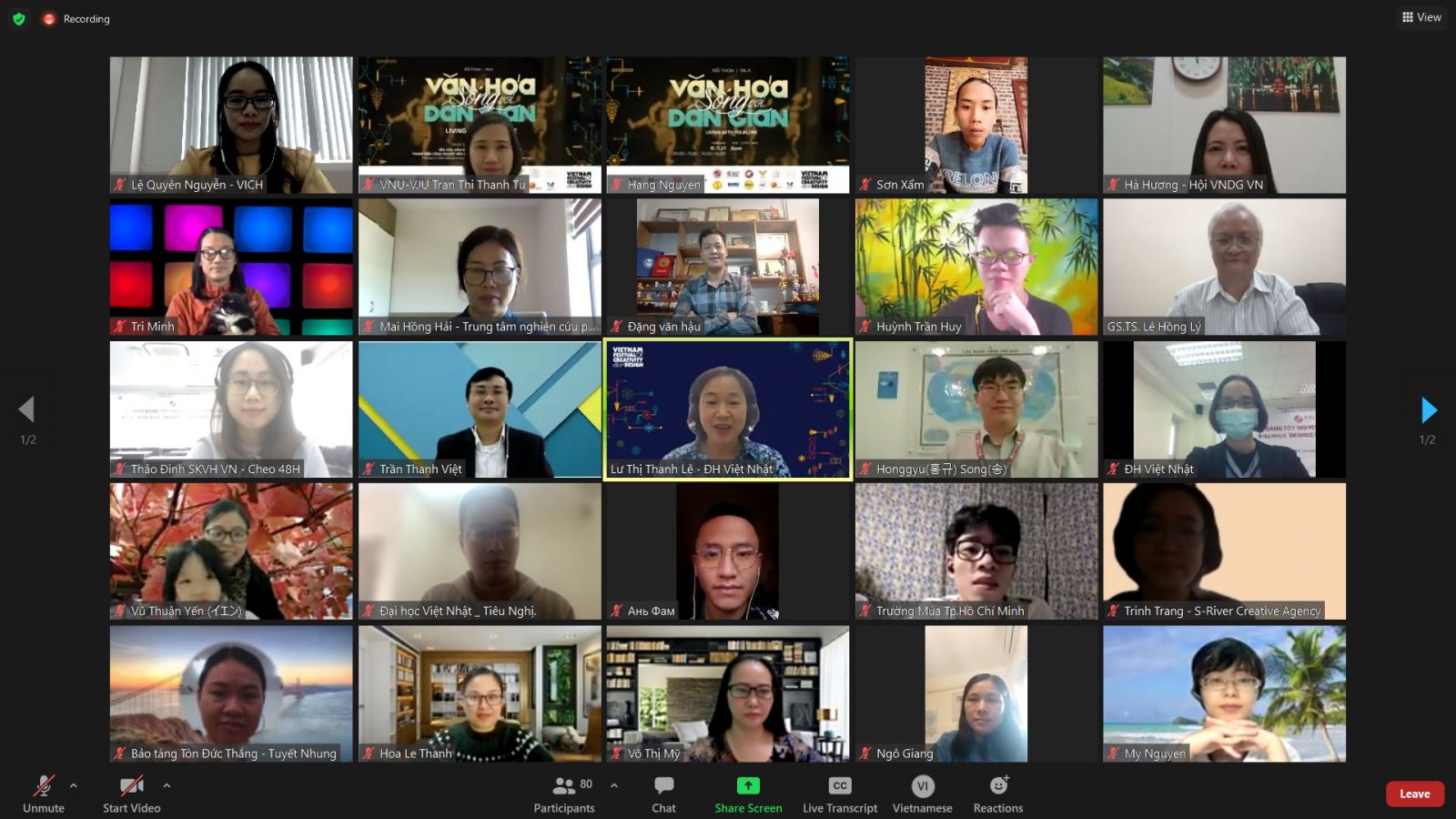
The first seminar’s photo session
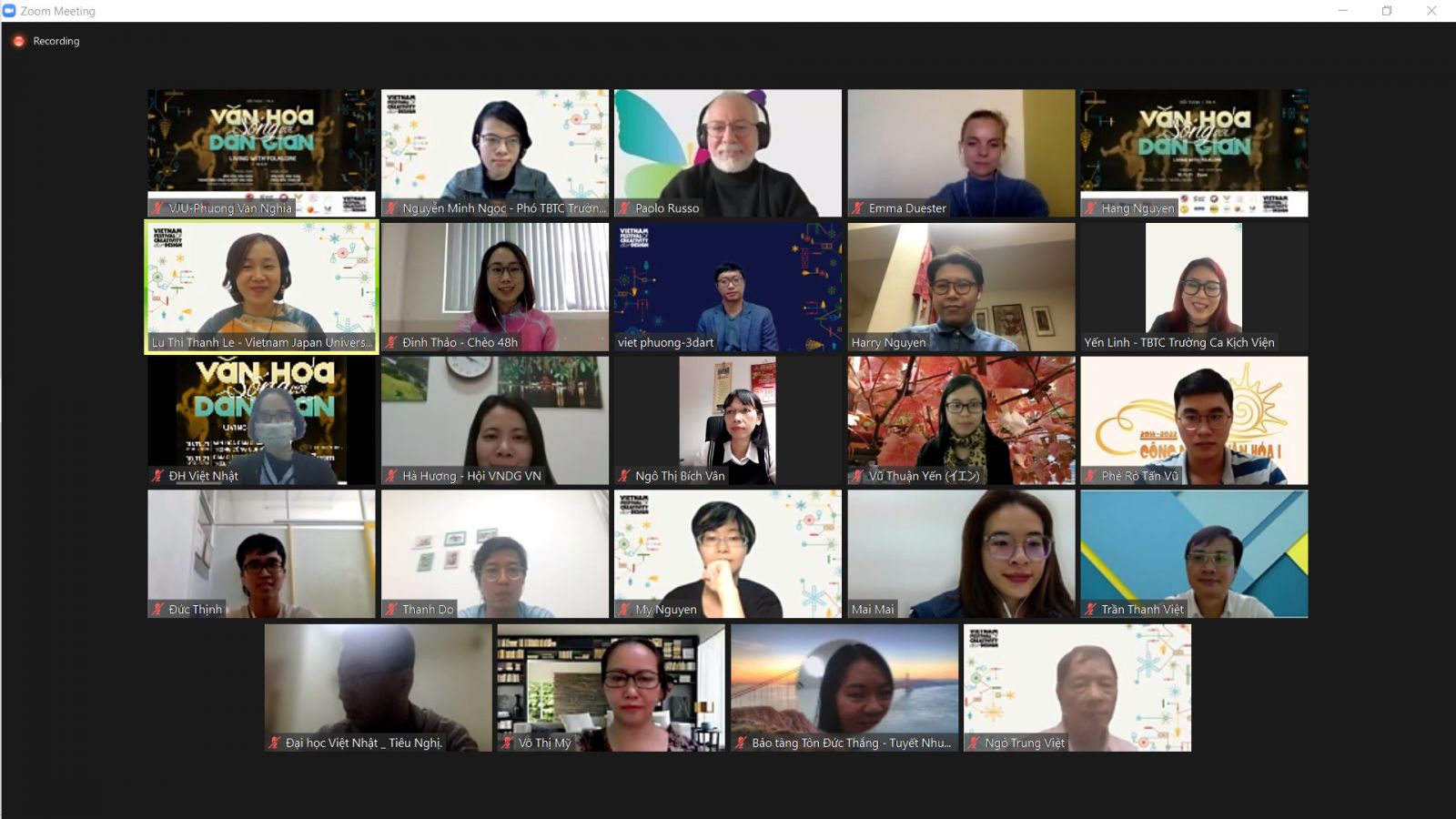
The second seminar’s photo session
VJU MEDIA
